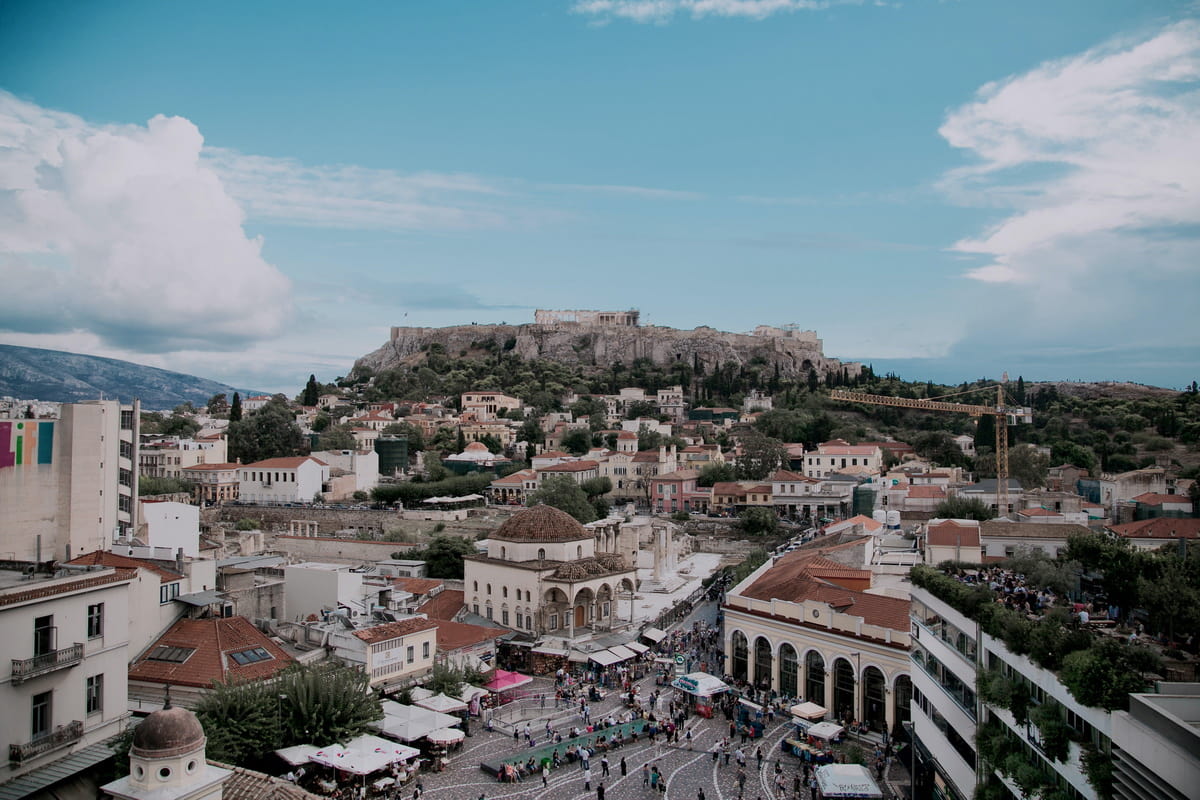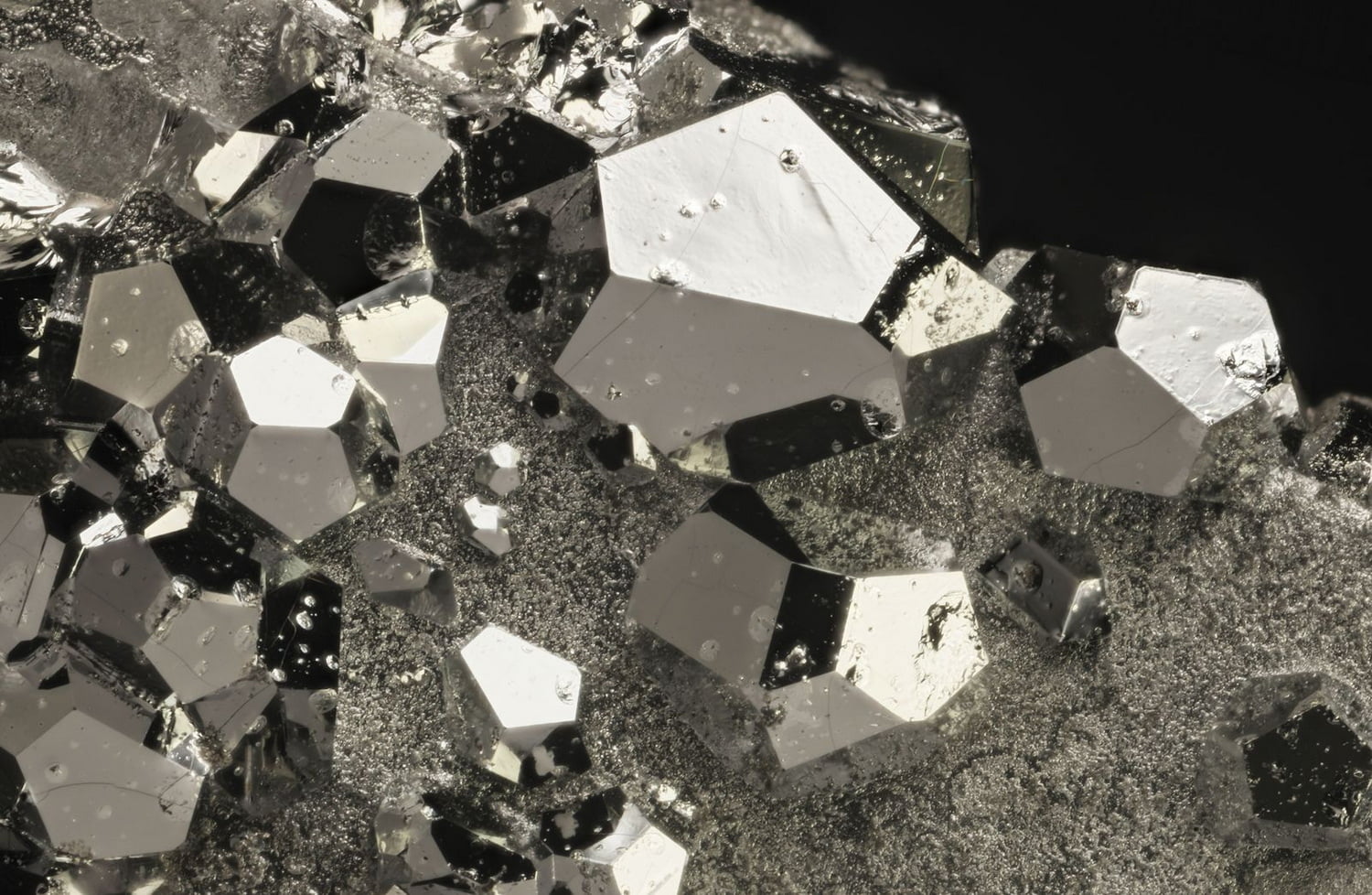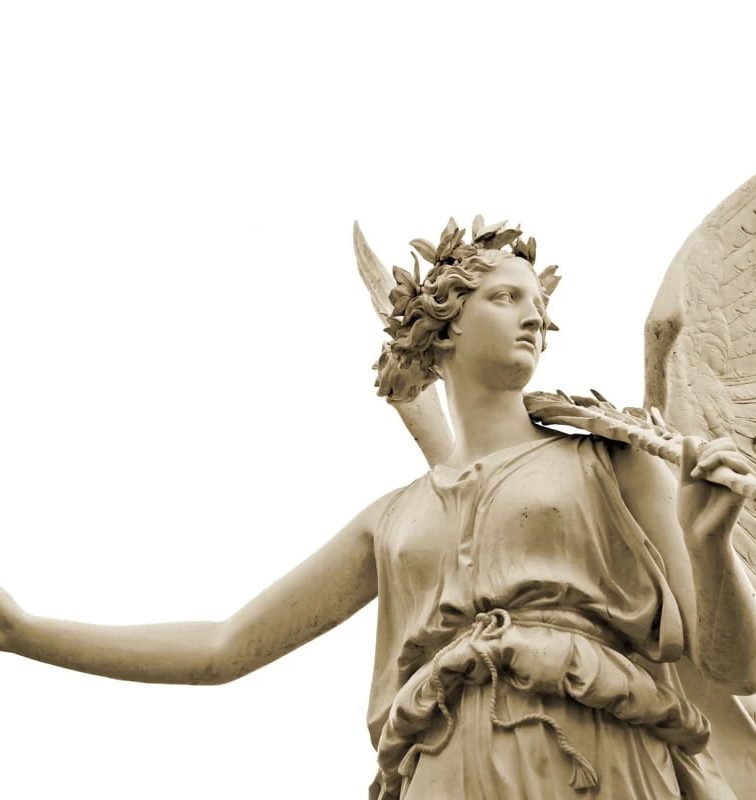Hello, history aficionados and culture connoisseurs! Are you ready to peel back the layers of Athens, a city that’s both an ancient relic and a bustling modern metropolis? We’re diving deep into a place that’s more than just a collection of archaeological wonders.
From the towering Acropolis of Athens to its revolutionary role as the birthplace of democracy, this city offers a smorgasbord of eye-opening tales. So grab some moussaka, put on your best pair of reading glasses, and let’s get this Athenian party started!
1. Oldest Capital City in Europe
Say ‘hi’ to the granddaddy of all European capitals—Athens! Dating back over 3,400 years, Athens holds the title of the oldest capital city in Europe. Sure, Rome and London might get all the press, but when it comes to seniority, Athens takes the cake.
Founded around the 11th century BC, Athens hasn’t just been standing around collecting dust; it’s been evolving and influencing the world, setting trends long before social media made it a thing.

Zsófia Fehér / Pexels
2. Athens Has More Theaters Than Any Other City in the World
This one’s for the drama queens and kings out there. Did you know that Athens has more theaters than any other city in the world? We’re talking over 148 stages. New York’s Broadway and London’s West End can take a seat because Athens is the real theater capital. A city that pioneered theater arts is keeping the tradition very much alive.
Whether it’s drama, comedy, or tragedy, the Athenian theater scene is a buffet of emotional extravaganzas. Truly, this counts as one of those fun facts about Athens you wouldn’t want to miss.
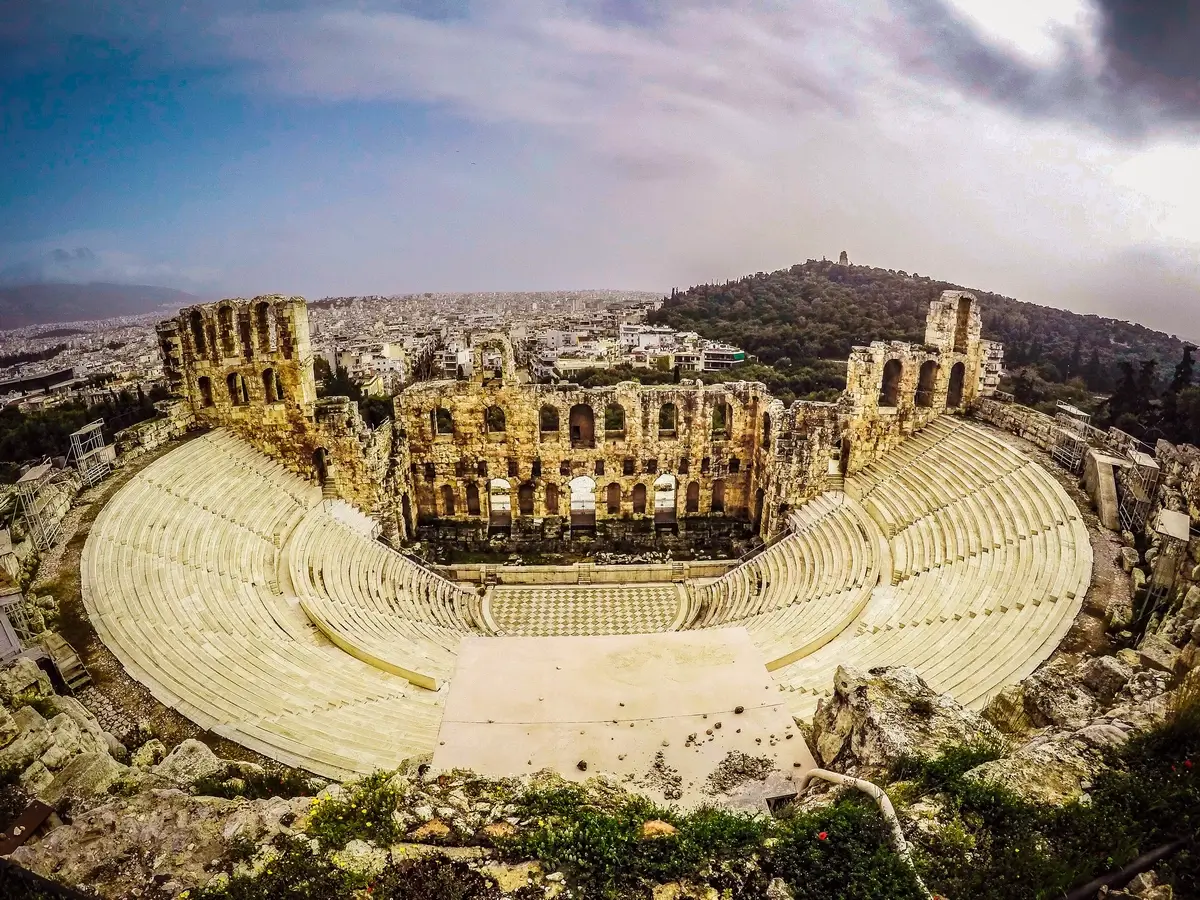
Image by wirestock / Freepik
3. Speaking of Democracy, It Was Born Here
Oh, did I mention democracy? Yeah, you might’ve heard of it. This wee idea that people should have a say in their governance was kinda, sorta invented right here. During the 5th century BC, a sharp Athenian bloke named Cleisthenes decided that maybe tyranny wasn’t all that cool. Fast forward a few tweaks and debates, and voila, democracy was served.
This isn’t just Athenian bragging rights; this is world history, folks. It started with a “Demos,” which means “people” and “Kratos” meaning “power” — put them together, and you’ve got people power!
4. The Acropolis Isn’t Just One Building
You know how Hollywood loves to show the Acropolis as just the Parthenon? Yeah, well, that’s like saying The Beatles are just John Lennon—important, but not the whole story. The Acropolis of Athens is an ancient citadel featuring several buildings. Sure, the Parthenon is the rock star, but don’t forget the Erechtheion, the Temple of Athena Nike, and the Propylaea.
These architectural wonders served various religious and civic purposes. And guess what? Each building has its own history, design, and cultural significance. Basically, the Acropolis is the ultimate ensemble cast of ancient Athens.
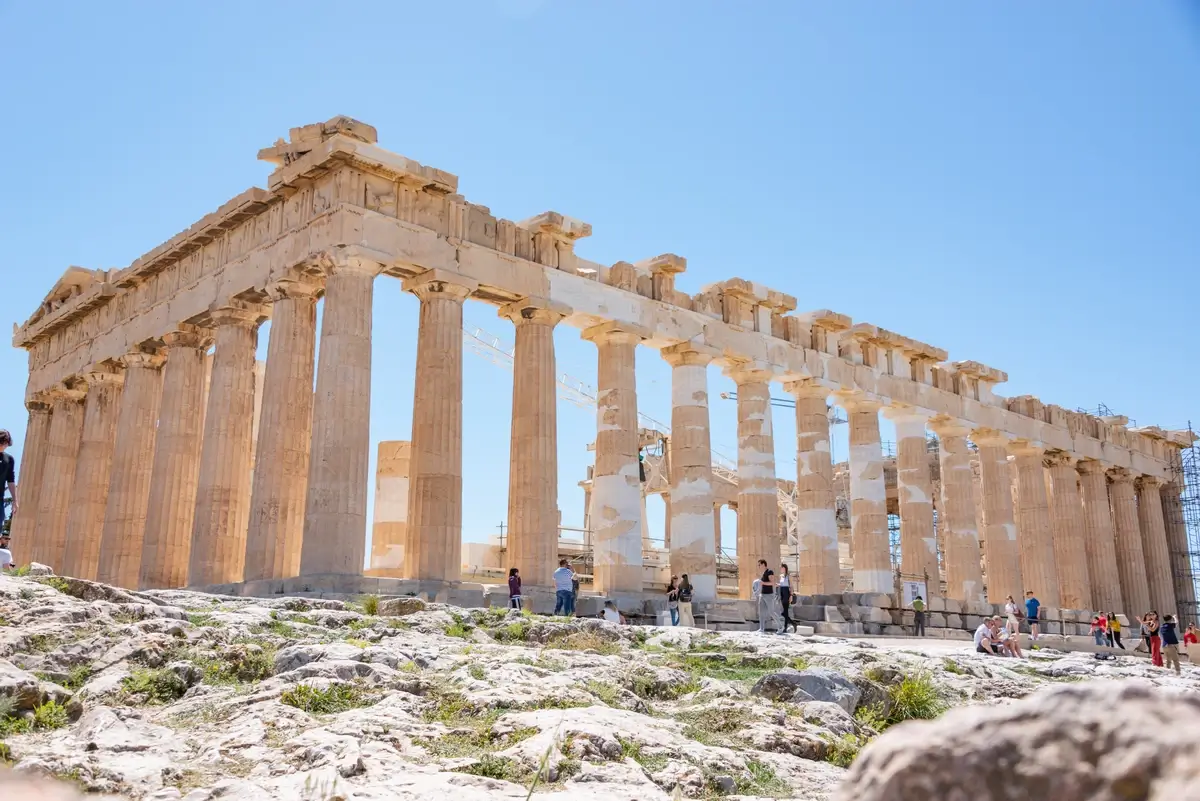
Diego F. Parra / Pexels
5. The Temple of Olympian Zeus: A Ruin 638 Years in the Making
Here’s an interesting fact about Athens: patience wasn’t exactly the strongest suit of its builders. Case in point? The Temple of Olympian Zeus. This monolithic structure was 638 years in the making! Can you imagine waiting that long for your living room renovation?
Started in the 6th century BC, the temple wasn’t completed until the 2nd century AD under the Roman Emperor Hadrian. The final product boasted a whopping 104 Corinthian columns, but today only 15 remain. Still, it’s a glorious lesson in ‘better late than never.’
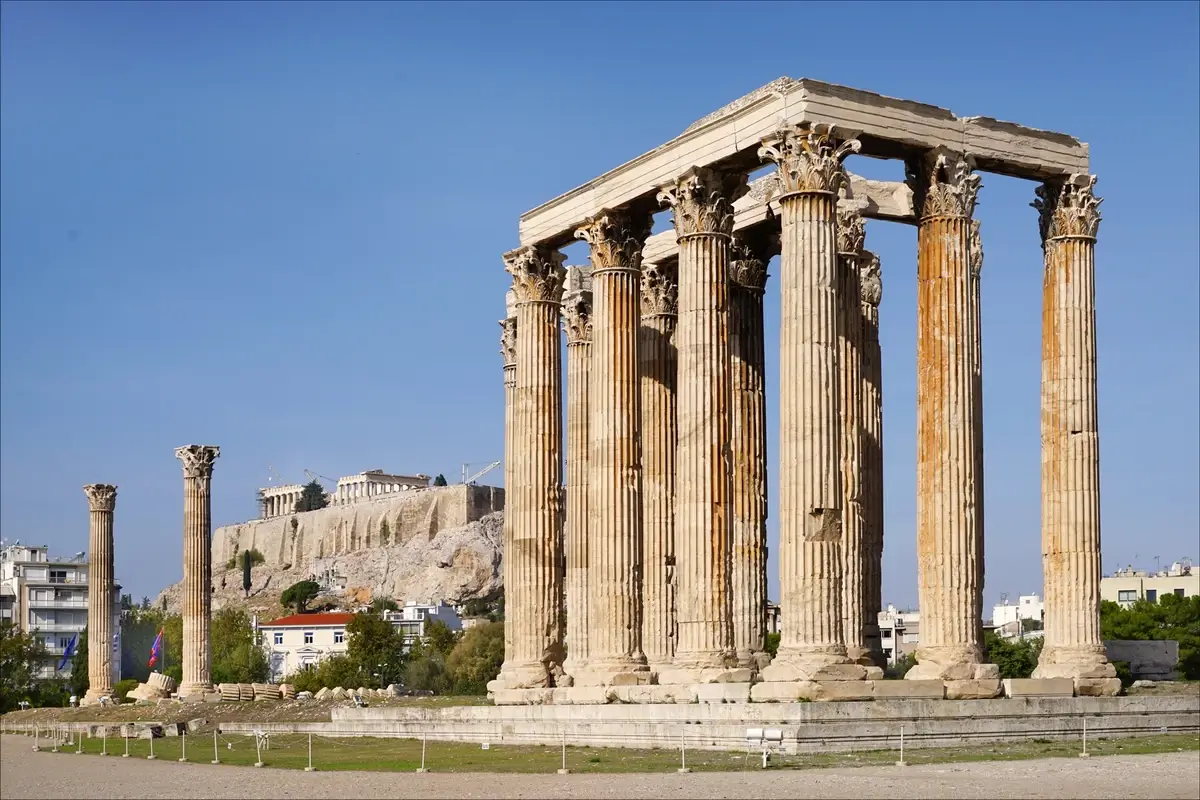
Image source: Wikimedia Commons
6. Marathon: More Than a Long Run
Here’s one for your next trivia night: the term ‘Marathon’ isn’t just about running 26.2 miles. The name comes from the Battle of Marathon, a significant dust-up between Athens and Persia in 490 BC. Athenian soldiers ran from Marathon to Athens to deliver the news of a miraculous victory, and thus the modern marathon was born.
Why’s this in our Athens fun facts? Because Athens isn’t just about buildings and olives; it’s about incredible, sweat-inducing history that you can literally run through!

Image source: nationalgeographic.com
7. Socrates, Plato, Aristotle: The OG Think Tank
Think Silicon Valley is the only hotspot for groundbreaking ideas? Nah, ancient Athens beat them to the punch by millennia. Homeboys like Socrates, Plato, and Aristotle were kicking around here doing all sorts of intellectual heavy lifting. From ethics to politics to the very nature of existence, these dudes laid the foundation for Western philosophy.
And you can still feel the ripple effects of their ideas today, making this one of the most impactful fun facts about Athens. Imagine what their Twitter threads would have been like!

Image source: history.com
8. Every Street’s a Catwalk for Athenian Strays
Move over, fashion models! The real runway stars in Athens are its street cats. If you’re ever in this ancient city, you’ll notice that feline models strut their stuff on just about every block. These aren’t your run-of-the-mill strays; they’re practically part of Athens’ cultural fabric.
It’s not uncommon for locals and tourists alike to feed and photograph these photogenic furballs. In a place teeming with history, the cats add a modern, quirky charm that just screams Athens.
9. Athens Consumes More Coffee Than Any European City
Caffeine addicts, assemble! The average Athenian consumes about 5.4 kilos of coffee per year. That’s more than in any other European city. So while Parisians sip their wine and Londoners clutch their tea, Athenians are buzzing through the day with their Greek coffee.
If you thought that’s just because of the adult population, you’re in for another surprise: Greek children often start their love affair with coffee as early as 6 years old. Talk about starting them young!

Ketut Subiyanto / Pexels
10. One-Third of Greece’s Population Lives in Athens
You might have heard the term “city-state” while learning about ancient Greece, but modern Athens is a metropolis-state of its own. Roughly one-third of Greece’s entire population resides in Athens. That’s approximately 3.2 million people out of Greece’s near 10 million population.
What draws them all here? Jobs, culture, or perhaps the city’s magnetic personality? Regardless, this is an important addition to your Athens fun facts repertoire.
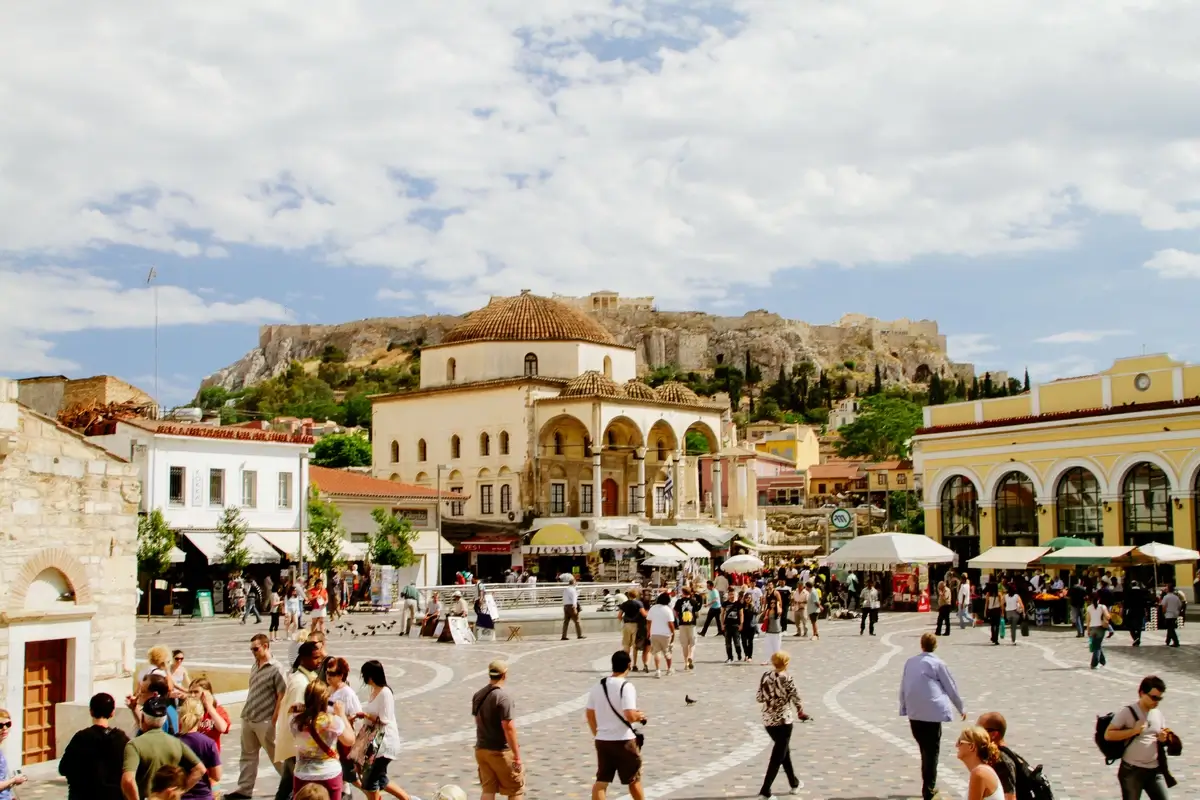
Jeff Stapleton / Pexels
11. Athens has 148 Officially Recognized Schools of Philosophy
Remember those famous thinkers, Socrates, Plato, and Aristotle? They left a legacy, and not just in dusty tomes your philosophy teacher adored. Athens is home to 148 officially recognized schools of philosophy. This is a city that takes its navel-gazing seriously!
If you’re looking to have your mind blown with Socratic dialogues or Platonic ideals, Athens is the place to be. What’s more, some of these schools are hundreds of years old, tracing back to the times of— you guessed it— ancient Athens.
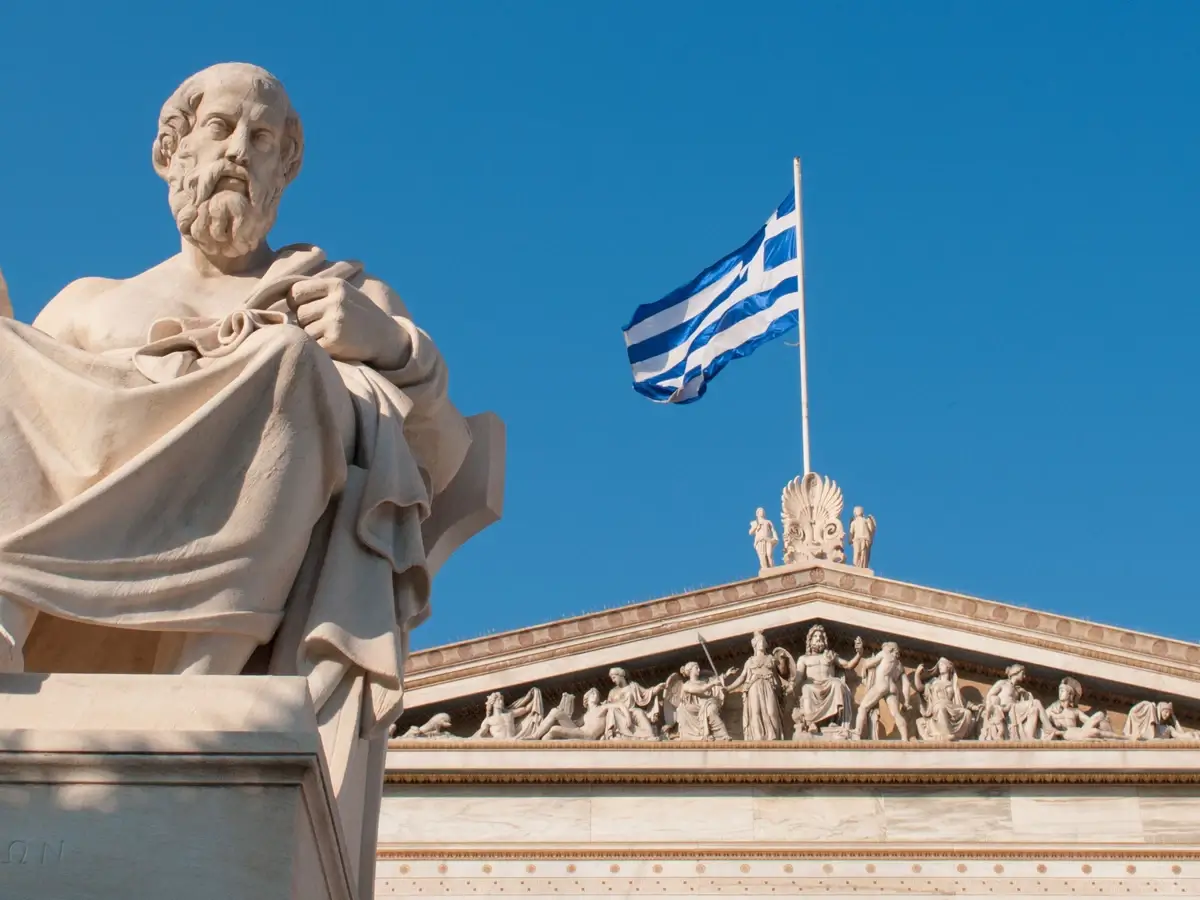
Image source: thoughtco.com
12. Dinner at 10 PM: Athens Nightlife
What’s the rush, foodies? If you’re dining at 7 PM in Athens, you’re basically having a late lunch. When it comes to meals and nightlife, Athens keeps it nocturnal. The norm is to have dinner around 10 PM, sometimes even later. So, if you’re a night owl who loves good food, welcome to your paradise!
Restaurants and tavernas buzz with life well into the night, serving everything from traditional Greek fare to international cuisine. And don’t forget the ouzo; it’s a dining experience that merges culture, taste, and community like nowhere else.
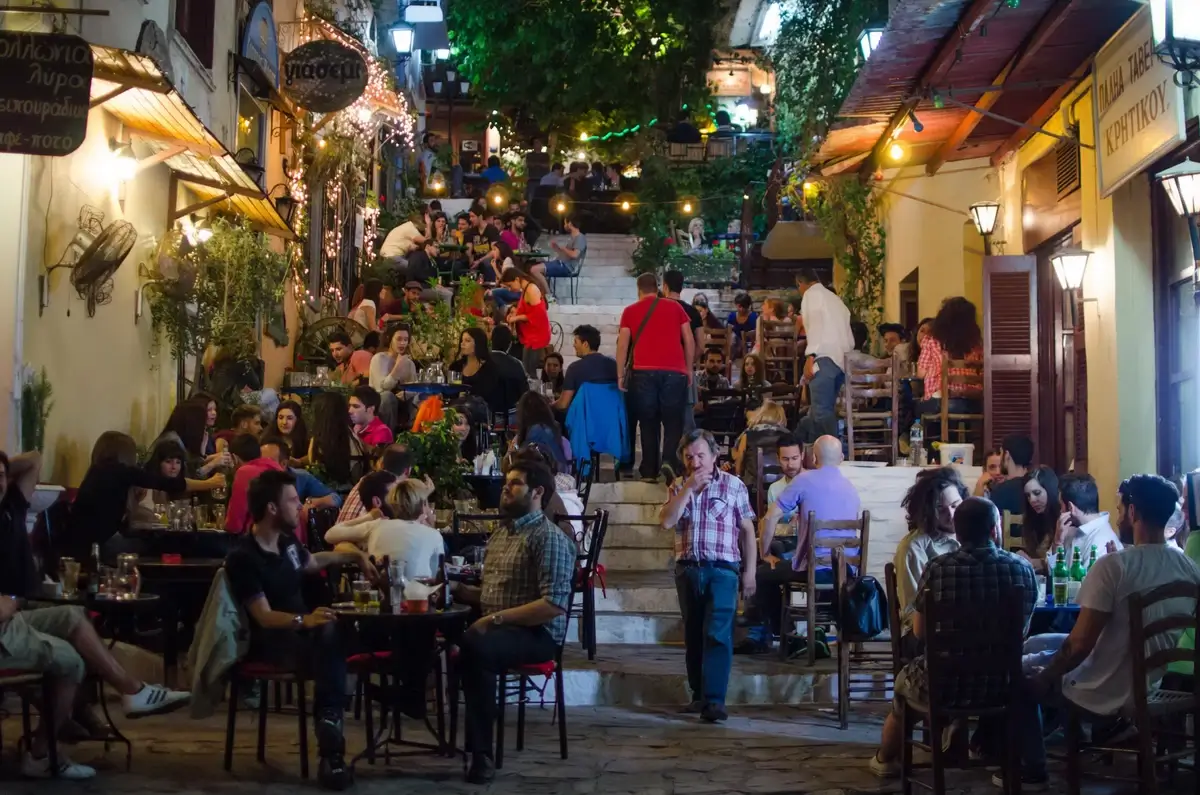
Image source: contexttravel.com
13. The Evzones: The Coolest Bouncers at the Parliament
The Greek Presidential Guard, known as the Evzones, are not just soldiers; they’re symbols of Greek culture and heritage. Stationed in front of the Greek Parliament building, they’re essentially the world’s most disciplined bouncers. Decked out in traditional uniforms that include pleated kilts, tasseled knee garters, and those funky shoes with the big pom-poms, they put the “guard” in “avant-garde.”
Their changing of the guard ceremony is a must-see, blending military precision with balletic moves. Don’t be fooled by the elaborate dance steps; these guys are rigorously trained and can stand motionless for hours.

Image source: dimitrisvlaikos.com
14. The City of Neighborhoods
Think of Athens as a collection of small villages masquerading as a big city. From Plaka and Kolonaki to Psiri and Exarchia, each neighborhood has its own unique vibe and subculture.
Plaka’s got that old-world charm, Kolonaki offers high-end shopping, Psiri is your go-to for bohemian vibes, and Exarchia is the hotbed for political activism. Whether you’re a history buff, a fashionista, or a revolutionary at heart, there’s a corner of Athens just for you.
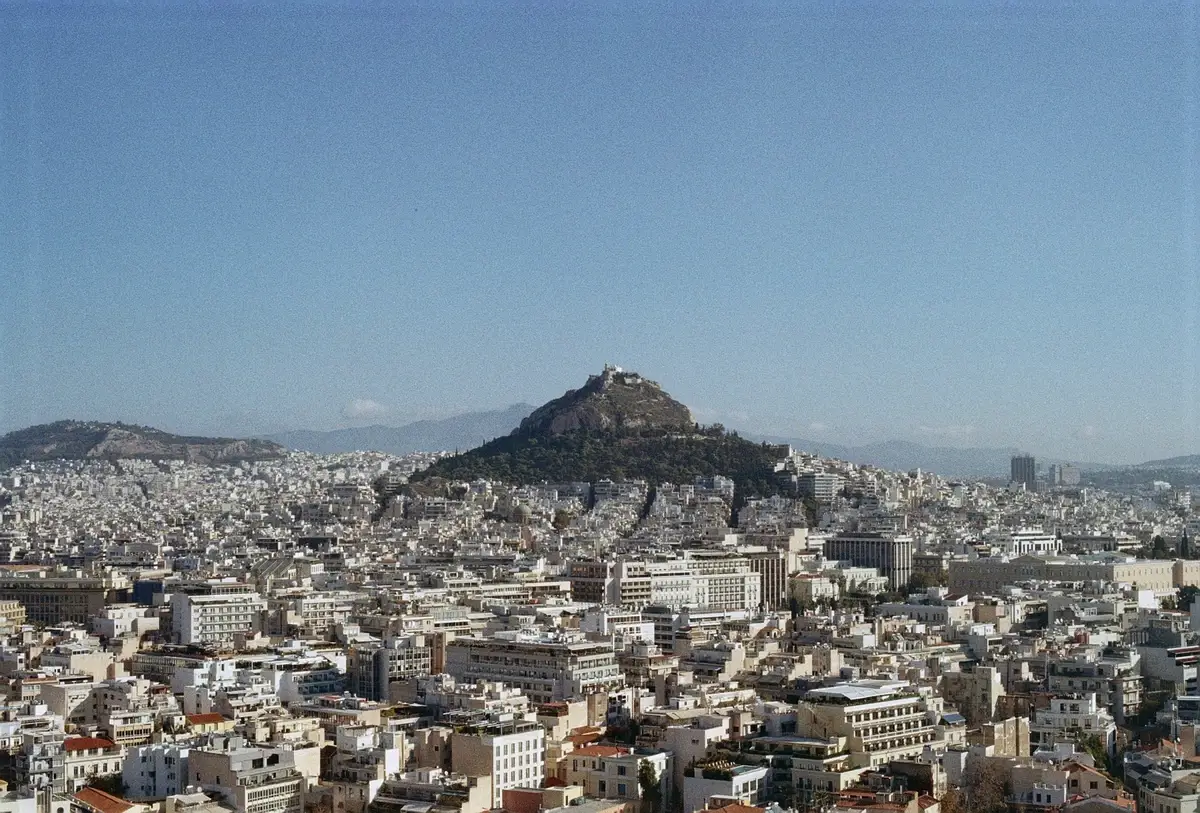
Zsófia Fehér / Pexels
15. Street Art Galore
If the ancient ruins are Athens’ venerable elders, then the street art is its rebellious teen. Over the years, Athens has emerged as a global hub for street art, offering a kaleidoscope of colors, themes, and styles. From political statements to abstract murals, the city is a living canvas.
Not only does the street art add a modern edge to this ancient city, but it also provides a voice to its people, making this one of the most contemporary Athens fun facts.

Image source: timeout.com
16. Sparta vs Athens: The OG Rivalry
If you think the Red Sox and Yankees have a rivalry, you ain’t seen nothing yet. Athens and Sparta were the original frenemies. These two city-states were as different as chalk and cheese—one focused on democracy and the arts, and the other was all about military might and discipline. They were the Yin and Yang of ancient Greece.
Sparta may have had the warriors, but Athens was the birthplace of democracy and culture, thank you very much. This ancient animosity led to the Peloponnesian War, which—spoiler alert—didn’t end well for either side but forever cemented their places in history.
17. The Original Olympic Games Were Held at Olympia, Not Athens
Olympic dreams, anyone? Athens is home to the first modern Olympic Games, but here’s a plot twist: The original Olympic Games were actually held at Olympia, not Athens.
Olympia is about a four-hour drive from Athens, and the games were religious festivals honoring Zeus. Talk about having to share the spotlight!
18. Athens is Built Around Seven Hills
Rome isn’t the only city famous for its hills; Athens is also built around seven hills. The most famous among them is, of course, the Acropolis. But let’s not forget the other six: Areopagus, Philopappos Hill, Hill of the Nymphs, Pnyx Hill, Anchesmos Hill, and Lycabettus Hill.
From historical landmarks to gorgeous panoramic views of Athens, each hill has its own charm and significance. Climbing them can be a mini-adventure in itself!

Image source: azamara.com
19. Home to One of the Oldest Universities in the Eastern Mediterranean
Educationally speaking, Athens is top-notch. The National and Kapodistrian University of Athens, founded in 1837, is one of the oldest in the Eastern Mediterranean. It’s been churning out bright minds for nearly two centuries.
What’s more, the university was established by King Otto of Greece, who was originally from Bavaria, Germany. How’s that for international relations?
20. The Dazzling Panathenaic Stadium
You thought I was done talking about the Panathenaic Stadium? Nah, this marble wonder deserves its own shoutout. Built entirely of marble, this U-shaped architectural marvel has seen everything from gladiator fights in ancient times to the aforementioned first modern Olympic Games.
The stadium can hold up to 50,000 spectators, all of whom get to sit on, you guessed it, marble seats. Now, while this might not be great for cushioning your posterior, it’s beyond cool for a selfie backdrop.
21. Athens Was the First European Capital to Be Liberated in WWII
Here’s a historical nugget for you. Athens was the first European capital to be liberated from Axis occupation during World War II. The city was freed on October 12, 1944, and if you think the Athenians took it lightly, you’d be mistaken. Every year, this day is commemorated with various events and celebrations. Add this to your fun facts about Athens!
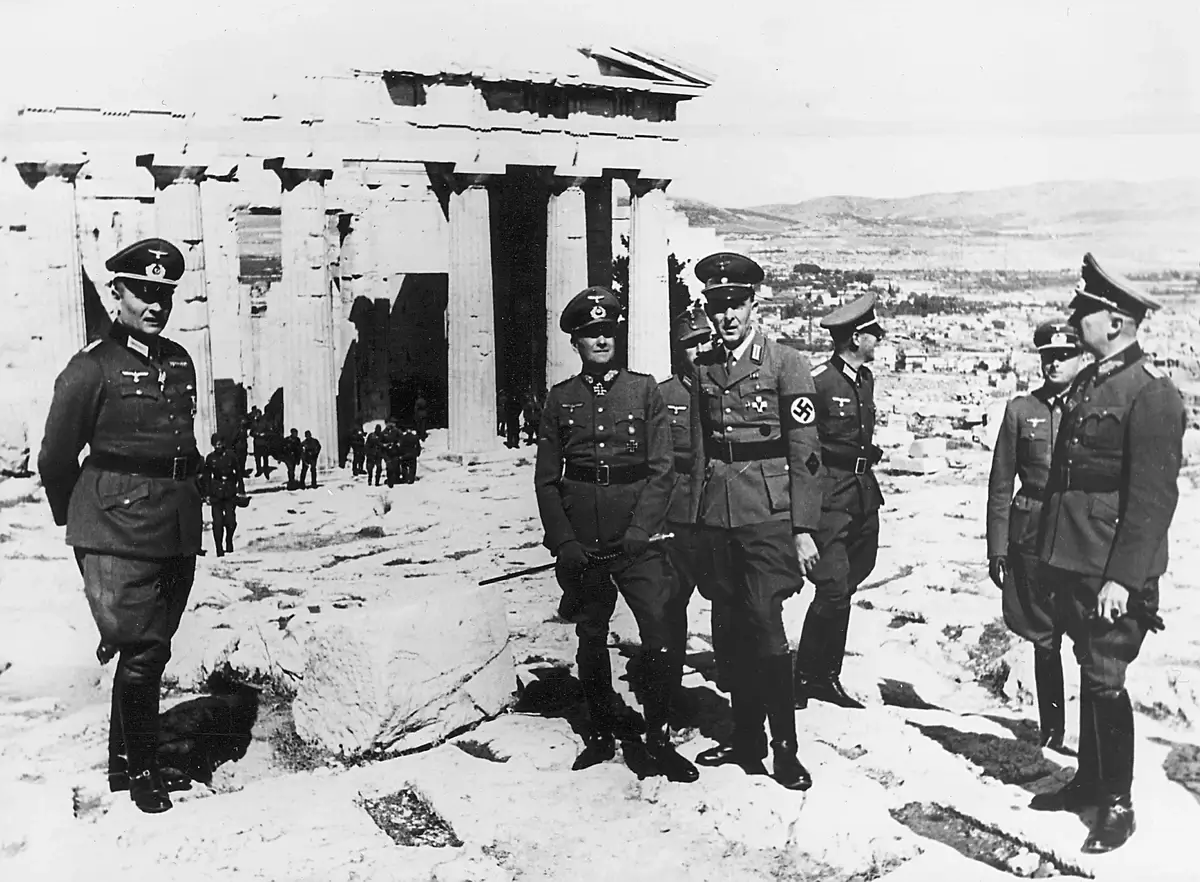
Image source: kathimerini.gr
22. Athens Metro is an Archaeological Exhibit
Talk about a commute with a view! While constructing the Athens Metro, builders unearthed so many artifacts that they turned several stations into mini-museums. So, while you’re hopping on the train, don’t forget to look around; you might be standing next to something several millennia old.
From pottery to sculptures, the artifacts are a glimpse into daily life in ancient Athens. It’s like the Athenian version of “Night at the Museum,” only it’s every day!

Image source: reddit.com
23. Athens is Named After Athena, But Poseidon Had His Eye on It
So, how did Athens get its name? The city is named after Athena, the goddess of wisdom. But what you might not know is that Poseidon, the god of the sea, had his trident set on it, too. The two gods had a good old-fashioned mythological showdown to decide who would get the city named in their honor.
Poseidon struck a rock, creating a spring, but Athena planted an olive tree, which the Athenians found more useful. Hence, Athena won, and Athens got its name.
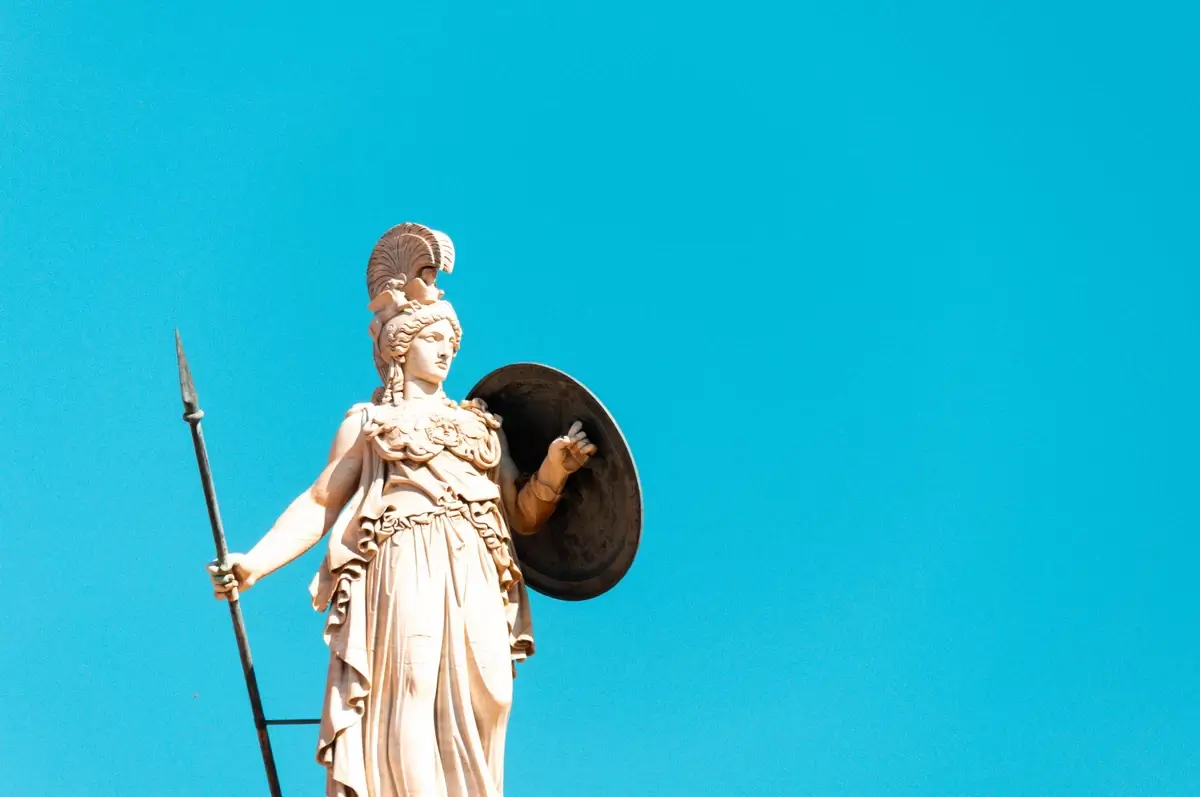
Athena statue. Hert Niks / Pexels
24. Athens is Home to the First Public Botanical Garden in Greece
For all the nature enthusiasts out there, this one’s for you. Athens boasts Greece’s first public botanical garden, known as the Diomedes Botanical Garden. Spanning around 460 acres, it’s a green oasis amidst the city’s hustle and bustle.
This garden hosts over 500 species of plants and trees from Greece and around the world.
25. The New Acropolis Museum is Built Over an Ancient City
Talk about layers of history! The New Acropolis Museum in Athens isn’t just a home for ancient artifacts. It’s built over the ruins of an ancient Athenian neighborhood. You can literally walk over glass floors and look down into history.
This makes the New Acropolis Museum a two-for-one deal. Not only do you get to see the incredible facts about Athens housed in the museum, but you also get a glimpse of life as it was thousands of years ago.
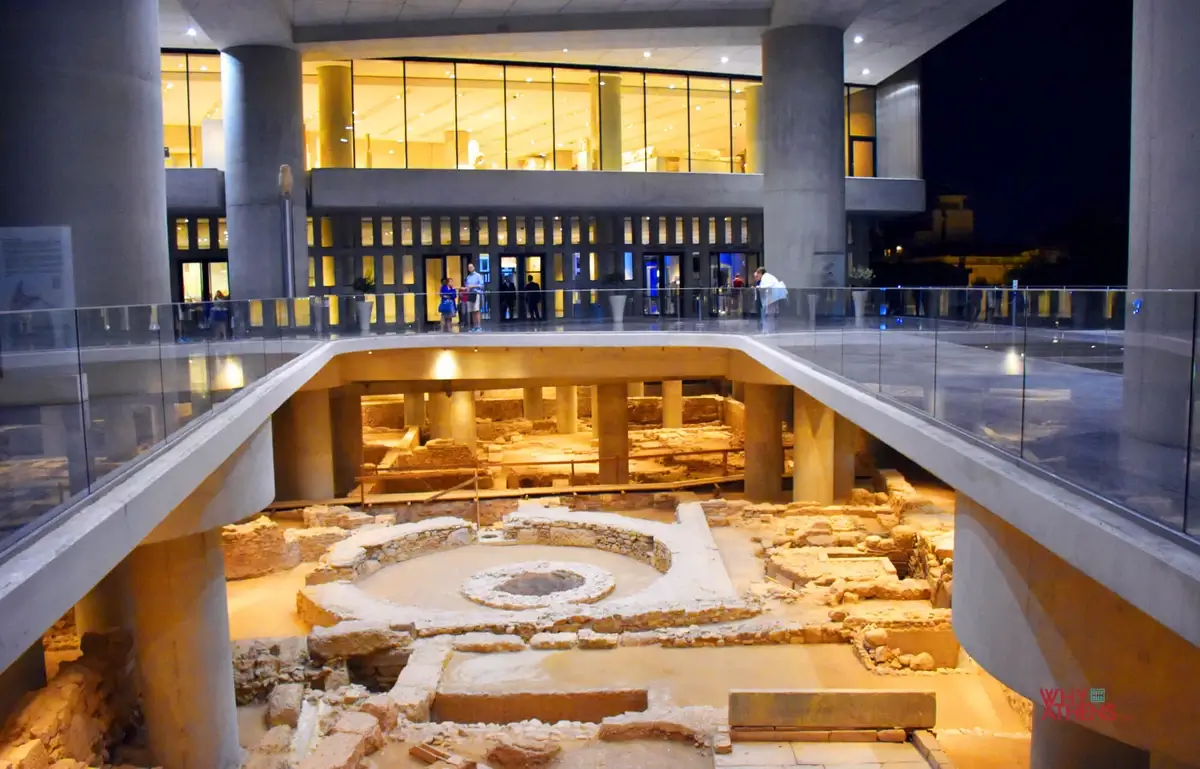
Image source: whyathens.com
26. First in Theatre: Where Drama Got Its Name
Alright, all you drama queens and kings, let’s give it up for Athens—the place where theatre was born! Ever heard of tragedies and comedies? Yep, those started here. Ancient Athenians gathered in open-air theatres like the Theatre of Dionysus to feast their eyes on the dramas of the day.
It wasn’t just entertainment; these performances were part of religious festivals and even had political undertones. So, when you’re throwing shade like a pro, remember, you’re participating in a tradition that goes back to ancient Athens.
27. Cine Thisio: The Oldest Open-Air Movie Theater in Athens
Ah, Cine Thisio, the granddaddy of open-air cinemas in Athens. Established in 1935, this theatre has seen generations of moviegoers stare in awe, not just at the screen, but at the dazzling Acropolis standing firm in the background.
It’s an Athenian twist on ‘dinner and a show,’ but you swap dinner for popcorn and the show for—well, still a show, but with a side of history. You can enjoy the latest Hollywood blockbusters or indie darlings, all while sitting in the cool Athenian breeze. How’s that for multitasking?
So, pack your snacks and let this vintage vibe take you on a time-traveling escapade. This is where old-world charm meets new-world entertainment, and it’s a match made in heaven.

Image source: greekgastronomyguide.gr
28. First City to Have a Concept of Citizenship
Let’s chat about one of the more innovative Athens fun facts: it’s the first city in the world to have developed the concept of citizenship. Yup, being an Athenian wasn’t just a matter of being born in the right place; it involved a set of rights and duties, like voting and military service.
So next time you’re standing in line at the DMV frustrated about citizenship paperwork, just remember: it all started in Athens!
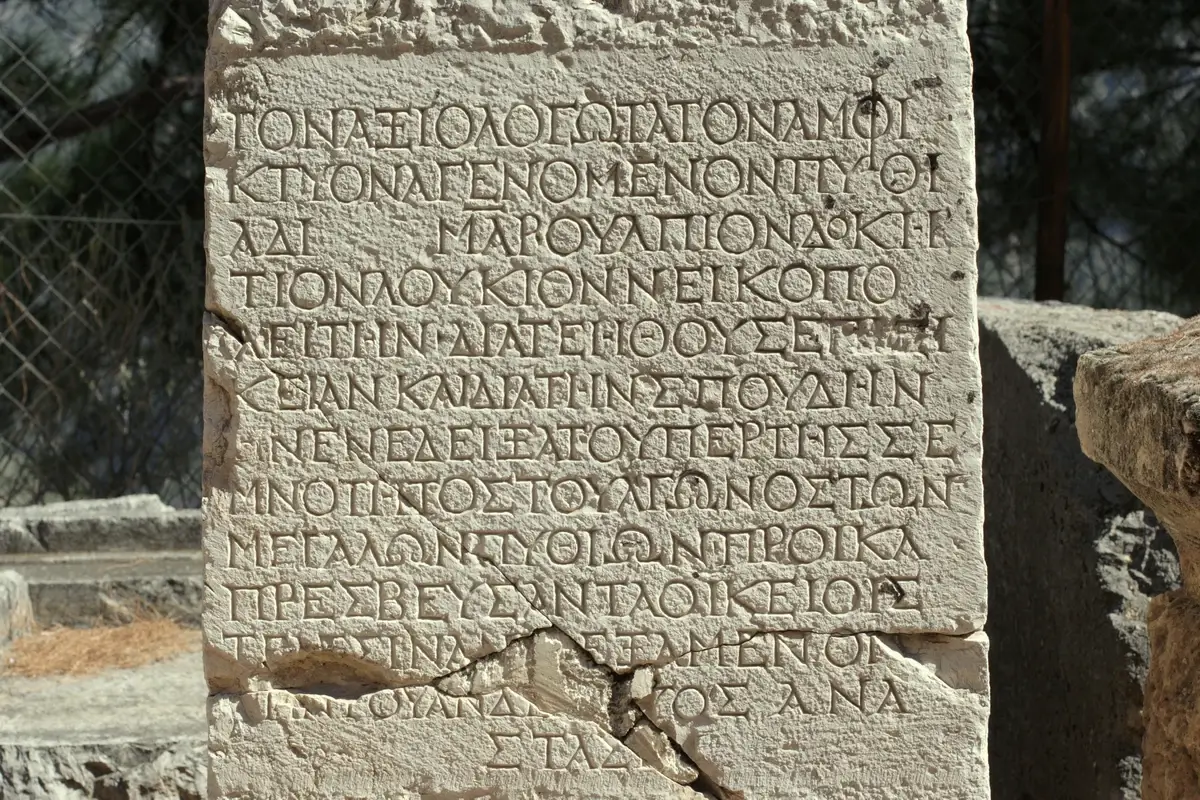
Image source: humanities.ox.ac.uk
29. Graffiti: The Modern Frescoes
You may think graffiti is a modern form of rebellion, but in Athens, it’s an ancient craft reborn. Seriously, even the age-old ruins weren’t safe from some classic doodles. In today’s Athens, areas like Psiri and Exarchia are vibrant canvases of graffiti.
So what’s the deal with Athens’ modern frescoes? Well, graffiti here isn’t just adolescent angst sprayed on a wall. It’s political, it’s poetic, and yes, it’s artistic. Some argue it’s vandalism, while others contend it’s the silent roar of the people.
Remember, in a city that’s been around as long as Athens, even a spray can becomes a historical artifact.

Image source: poznamka.ru
30. Streets Named After Heroes and Philosophers
GPS, who? When you’re walking through Athens, every step is a history lesson. The streets are named after ancient heroes, poets, and philosophers. Talk about living history, right? Socrates Street or Plato Avenue, pick your lane, literally.
And it’s not just for the aesthetics or the vibes. Naming streets after historical figures is about fostering a national identity. It’s a lesson in patriotism, told in a way that’s uniquely Athenian. That’s one way to learn about history without cracking open a dusty book.
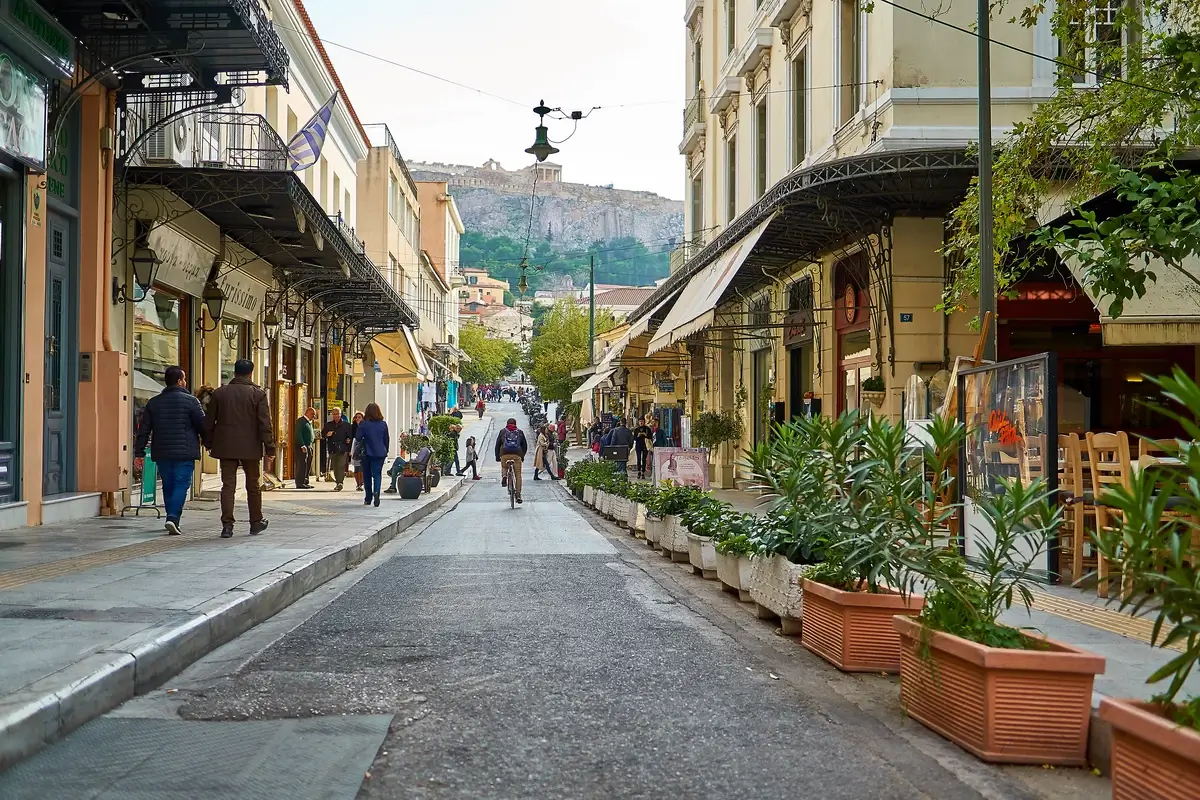
Image source: Wikimedia Commons
31. Greek Coffee Culture is UNESCO-Protected
Let’s talk about another liquid asset of Greece: coffee. Greek coffee culture is so unique and integral to daily life in Athens that it’s protected by UNESCO as an “Intangible Cultural Heritage.”
So when you’re sipping that thick, aromatic brew in a kafeneio (coffee house), you’re partaking in a globally recognized tradition.

Image source: thejc.com
32. The Greek Alphabet Originated in Athens
Bet you didn’t know this: the Greek alphabet, the world’s oldest, was formalized in Athens. This makes Athens not just a historical gem but a linchpin for modern languages.
So when you see those Greek letters in your math book or science paper, give a little nod to Athens for setting the standard.
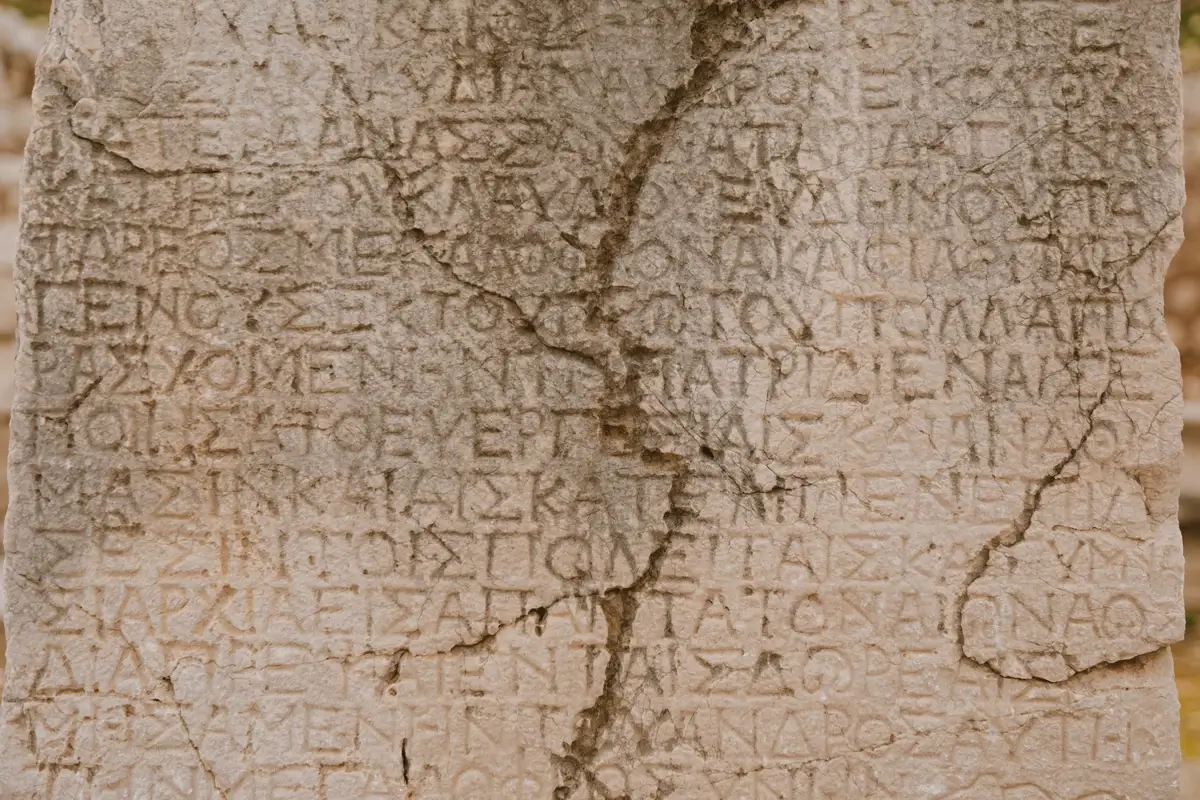
ROMAN ODINTSOV / Pexels
33. Athens is the Southernmost Capital in Europe
Geography buffs, here’s one for your “did you know” arsenal. Athens holds the title for the southernmost capital in Europe. Nestled at the tip of the Balkan Peninsula, it enjoys a Mediterranean climate that keeps things warm and sunny for most of the year.
If you’re looking to escape the chilly European winters, Athens is your go-to destination.

Image source: ox.ac.uk
34. Home to the First Meteorological Station
Here’s an interesting fact about Athens: it’s the birthplace of meteorology! The Tower of the Winds, built in the 1st century BCE, served as the world’s first meteorological station. It had a water clock, a wind vane, and even a sundial. The tower wasn’t just for timekeeping; it was also an early attempt at understanding weather patterns.
Athenians have been keeping their eyes on the skies for millennia, and this ancient tower is a testament to that.
35. Home of the World’s Oldest Cookbook
What’s cooking, good looking? How about some ancient recipes? Believe it or not, the world’s oldest known cookbook was written in Greece and discovered in Athens. The recipes include dishes like boiled ostrich and stuffed dormouse. It’s unclear if these recipes were daily staples or special treats, but either way, they offer fascinating insights into ancient Athenian gastronomy.
Let’s just say Athenians were foodies long before Instagram made it cool!

Image source: dazzle.center
FAQ
What are 3 facts about the Athenians?
- Philosophical Pioneers: Athenians were the poster children of intellectual thought in the ancient world. They didn’t just sit around in togas sipping wine; they were debating, contemplating, and basically inventing the study of ethics, politics, and the nature of existence. The likes of Socrates, Plato, and Aristotle hailed from Athens or spent significant time there, making the city the de facto epicenter of Western philosophy.
- Democratic Trendsetters: Forget modern voting systems with chads and electronic touchscreens; the Athenians had a pure form of democracy unlike any other in history. Citizens (well, male citizens, but let’s not ruin the nostalgia) would gather at a hill called the Pnyx and vote by a show of hands. Talk about OG political participation!
- Artistic Aficionados: Athenians were major patrons of the arts. From architecture to drama, they set standards that are still admired today. They built the Parthenon, a feat of architectural brilliance, and were pioneers in theatrical performances, where the genres of tragedy and comedy were first nurtured. Imagine watching the original works of Sophocles and Aristophanes, and you have an Athenian Friday night.
What is an odd fact about Athens?
Ah, you want a quirky titbit, do you? Here’s one: Athens is home to a range of hills, and one of them, Mount Lycabettus, is said to have been formed when Athena, the goddess of wisdom, dropped a rock she was carrying for the construction of the Acropolis. Picture this: the goddess of wisdom, basically the divine equivalent of a valedictorian, having a “whoopsie-daisy” moment. Talk about being down-to-earth, literally!
What is Athens most famous for?
Athens is synonymous with the Acropolis, baby! This ancient citadel perched above the city is the crown jewel and includes several ancient buildings, the most famous being the Parthenon. The Acropolis is like the Beyoncé of world monuments: iconic, awe-inspiring, and impossible to overlook. But it’s not just the structures; it’s what they symbolize—democracy, philosophy, and the Classical era—that make them globally revered.
How did Athens get its name?
The city is named after Athena, the goddess of wisdom and warfare. The story goes that both Athena and Poseidon, the god of the sea, wanted to be the patron deity of the city. To settle the dispute, they had a divine duel involving gifts. Poseidon struck a rock with his trident and created a saltwater spring. Useful, but salty water isn’t great for drinking. Athena, however, planted an olive tree, providing food, oil, and wood. The Athenians chose Athena, and the city got its name. Basically, it’s an ancient episode of “America’s Got Talent,” and Athena was the winning act.
Why is Athens so special?
Special is almost an understatement. Athens is the cradle of Western civilization. Imagine this city as a centuries-old dinner party where the guest list includes politicians, philosophers, artists, and warriors. The concepts of democracy, philosophy, drama, and many elements of art and science were either born or refined here. It’s like the intellectual and cultural kitchen where the recipe for modern Western thought was first cooked up.
How old is Athens?
Strap in, because this city has been kicking around for a long time. Athens has been continuously inhabited for over 5,000 years, making it one of the oldest cities in Europe. It’s like the great-great-great-great-grandmother of cities but still manages to be the life of the party.
Can you eat the oranges in Athens?
Technically, yes, you can eat the oranges in Athens. But should you? Probably not. The trees lining the streets are full of Seville oranges, which are very bitter. They’re perfect for making marmalade but not for snacking straight off the tree. It’s like biting into a citrusy betrayal; they look so inviting yet taste so harsh.
What is Athens also known as?
Apart from being called the “Cradle of Western Civilization,” Athens is sometimes called the “City of the Violet Crown” for the stunning purplish sunsets that grace its skies. Not just content with impressing the world through its intellectual achievements, the city also scores major points in the beauty department.
Is Athens a beautiful city?
Oh, you bet it is! Athens is an intoxicating blend of ancient grandeur and modern hustle. Picture this: you’re sipping a frappé at a café, and there’s the Parthenon in the background, lit up like a star. Around you, the streets pulse with life, blending modern murals and ancient statues. From Mount Lycabettus, the entire city sprawls out like a patchwork quilt of history and modernity, surrounded by hills and sea. It’s like watching a movie where every scene is a plot twist.
Who founded Athens?
While the city’s roots are lost in the mists of time, legend credits its founding to King Cecrops, a mythical ruler who was half-man and half-serpent. But let’s be honest, the real stars of the show were Athena and her olive tree, which clinched the deal and gave the city its name. If King Cecrops was the producer, Athena was the leading lady who stole the spotlight.


